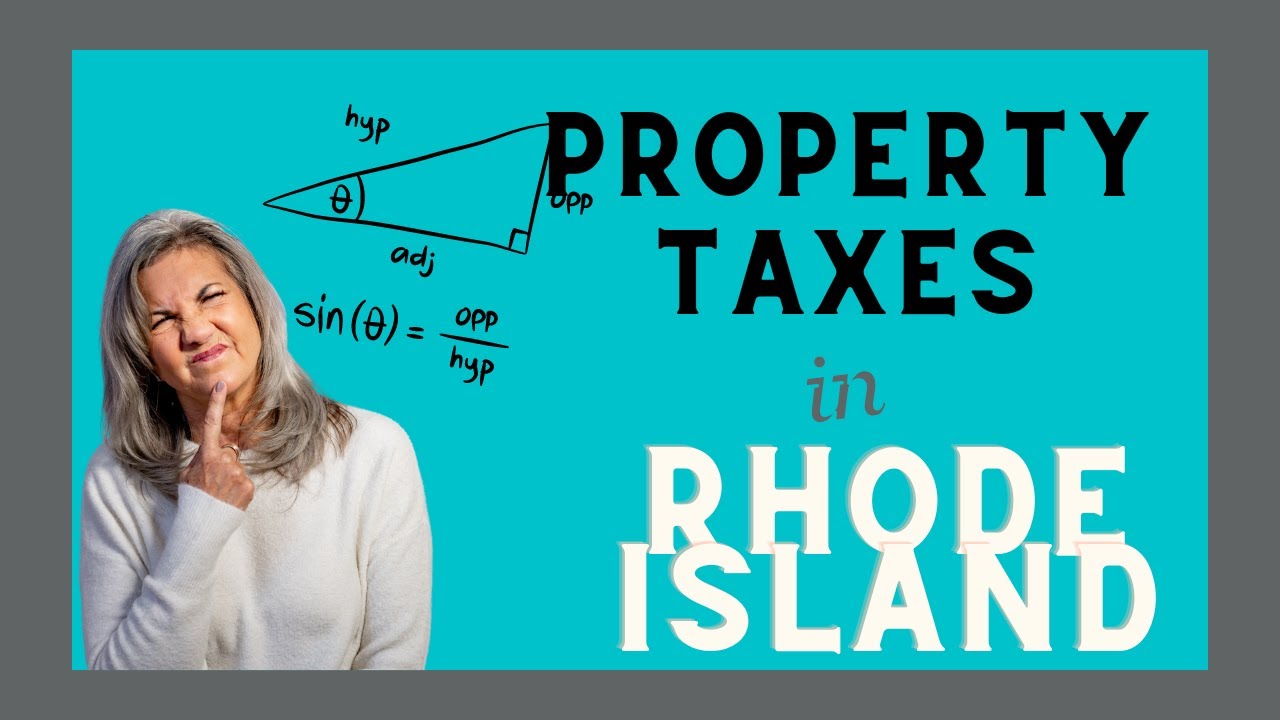Understanding Rhode Island’s Property Tax System
Rhode Island’s property tax system is a crucial source of revenue for local governments, providing funds for schools, public services, and infrastructure. Property tax is levied on real estate, including land, buildings, and any improvements made to the property. Understanding how Rhode Island’s property tax system works is essential for homeowners and potential buyers.
Factors That Determine Property Tax in Rhode Island
Several factors determine the property tax in Rhode Island. The primary factor is the assessed value of the property, which is determined by the local tax assessor. Other factors include the property’s location, size, and type. Additionally, the tax rate set by the local government and any exemptions or deductions for which the homeowner may qualify will also impact the property tax amount.
Assessing Property Value in Rhode Island
In Rhode Island, the assessed value of a property is determined by the local tax assessor’s office. Assessors consider various factors, such as recent sales of similar properties in the area, the property’s condition, and any improvements or renovations made. Property values are typically reassessed every three to five years, but individual cities and towns in Rhode Island may have different assessment schedules.
Rhode Island’s Property Tax Rates Explained
Rhode Island’s property tax rates vary depending on the municipality. The tax rate is expressed in terms of dollars per thousand dollars of assessed value. Rates can differ significantly between cities and towns, ranging from as low as $10 per thousand dollars of assessed value to over $30 per thousand dollars. It is crucial to research the specific tax rates in your area to understand how they will affect your property tax bill.
How to Calculate Property Tax in Rhode Island
Calculating property tax in Rhode Island involves multiplying the assessed value of the property by the local tax rate. For example, if a property has an assessed value of $300,000 and the tax rate is $20 per thousand dollars of assessed value, the annual property tax would be $6,000. It’s important to note that property tax bills are typically divided into quarterly installments.
Exemptions and Deductions in Rhode Island Property Tax
Rhode Island offers various exemptions and deductions that can help homeowners reduce their property tax burden. Common exemptions include those for veterans, senior citizens, and individuals with disabilities. Deductions may be available for properties used for agricultural purposes or owned by certain nonprofit organizations. Homeowners should consult with their local tax assessor’s office to determine if they qualify for any exemptions or deductions.
Comparing Property Tax Rates in Rhode Island’s Counties
Property tax rates can vary significantly between Rhode Island’s counties. For example, Newport County generally has lower tax rates compared to Providence County. It is important for homeowners to compare property tax rates between counties before purchasing a property, as it can significantly impact the overall cost of homeownership.
The Impact of Property Tax on Rhode Island Homeowners
Property tax has a direct impact on Rhode Island homeowners, as it affects their monthly mortgage payments and overall housing expenses. Higher property tax rates can make homeownership less affordable for some individuals and families. Additionally, increasing property values can lead to higher tax bills, potentially affecting homeowners on fixed incomes. Understanding the impact of property tax is crucial for homeowners to budget effectively.
Rhode Island’s Property Tax Relief Programs
Rhode Island offers several property tax relief programs to assist homeowners who may struggle to pay their tax bills. These programs include the Homestead Exemption, which provides relief to eligible homeowners by reducing the assessed value of their primary residence. The state also offers property tax deferral programs for qualified senior citizens and disabled individuals. Homeowners should explore these programs to determine if they qualify for any assistance.
Tips for Reducing Your Property Tax in Rhode Island
There are strategies homeowners can employ to reduce their property tax in Rhode Island. Regularly reviewing your property assessment for errors or overvaluation is crucial. Homeowners can also consider appealing their property assessment if they believe it is unfair. Additionally, taking advantage of available exemptions and deductions can help lower the property tax burden. Consulting with a property tax professional can provide further guidance on reducing property tax expenses.
The Importance of Staying Up to Date with Property Assessments
Staying up to date with property assessments is essential for Rhode Island homeowners. Property values can change over time, and reassessments occur periodically. Being aware of these changes ensures homeowners are paying the correct amount of property tax based on the property’s current value. Failure to stay informed about property assessments may result in overpayment or underpayment of property taxes.
Seeking Professional Help: Rhode Island’s Property Tax Consultants
When dealing with complex property tax matters, homeowners in Rhode Island can seek assistance from property tax consultants. These professionals specialize in understanding the intricacies of Rhode Island’s property tax system and can provide guidance on reducing property tax bills, appealing assessments, and maximizing available exemptions and deductions. Engaging the services of a property tax consultant can save homeowners time, money, and stress when dealing with property tax-related issues.
Understanding Rhode Island’s property tax system is crucial for homeowners and prospective buyers. By considering the factors that determine property tax, assessing property value, and exploring exemptions and deductions, homeowners can effectively manage their property tax burden. Additionally, staying up to date with property assessments and seeking professional assistance can help homeowners make informed decisions and reduce their property tax expenses in Rhode Island.





